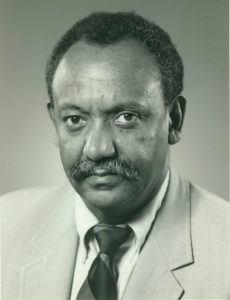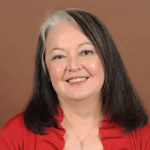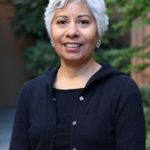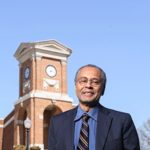Harold M. Rose Award for Anti-Racism Research and Practice
Deadline: October 15, 2025
This award honors geographers who have a demonstrated record of the type of research and active contributions to society that have marked Dr. Harold Rose’s career. The award will be given to those who have served to advance the discipline through their research, and who have also had on impact on anti-racist practice. The award is presented during the AAG’s Annual Meeting.
Criteria
Individuals are eligible, regardless of their status as AAG members.
Nominations
Nominations must be received by the deadline (Eastern Standard Time). Nominations will include:
- a brief (500 word maximum) description of the reasons why the nominee should be selected;
- at least 2, but no more than 3, letters of recommendation. Letters of recommendation are directly requested from references in the application portal.
As with all other AAG awards, eligibility also rests on the candidate being in compliance with the AAG Professional Conduct Policy. Nominations may be rescinded, and the award may also be revoked for any candidate or awardee who is found in violation of the AAG’s Professional Conduct Policy.
About the Award:
 This award honors Dr. Harold M. Rose, who was a pioneer in conducting research on the conditions faced by African Americans. Rose received his Ph.D. at Ohio State University in 1960, whereupon he began a joint appointment in the departments of Geography and Urban Studies at the University of Wisconsin – Milwaukee. He has devoted his career to expanding the discipline of geography into anti-racist scholarship, an area that had been virtually ignored. Dr. Rose conducted research on the black Ghetto, blacks and Cubans in Miami, and the quality of life in black communities, especially the exposure of many black communities to high rates of homicide. He also conducted research on black residential mobility and interregional migration. Rose became the first black president of the AAG in 1976. In 1977, he voiced the need to expand research into the experiences of blacks in his presidential address entitled “The Geography of Despair”. Dr. Harold Rose’s work reminds us that it is possible for scholars to go beyond theoretical understanding of racism and other social practices to engage actual communities and to make a difference in human life.
This award honors Dr. Harold M. Rose, who was a pioneer in conducting research on the conditions faced by African Americans. Rose received his Ph.D. at Ohio State University in 1960, whereupon he began a joint appointment in the departments of Geography and Urban Studies at the University of Wisconsin – Milwaukee. He has devoted his career to expanding the discipline of geography into anti-racist scholarship, an area that had been virtually ignored. Dr. Rose conducted research on the black Ghetto, blacks and Cubans in Miami, and the quality of life in black communities, especially the exposure of many black communities to high rates of homicide. He also conducted research on black residential mobility and interregional migration. Rose became the first black president of the AAG in 1976. In 1977, he voiced the need to expand research into the experiences of blacks in his presidential address entitled “The Geography of Despair”. Dr. Harold Rose’s work reminds us that it is possible for scholars to go beyond theoretical understanding of racism and other social practices to engage actual communities and to make a difference in human life.
Note: See also President’s Column, AAG Newsletter (47):5.
For questions or difficulties, please contact grantsawards@aag.org or call the AAG at 202-234-1450.
AAG Harold M. Rose Award for Anti-Racism Research and Practice Recipients
Mauris non tempor quam, et lacinia sapien. Mauris accumsan eros eget libero posuere vulputate. Etiam elit elit, elementum sed varius at, adipiscing vitae est. Sed nec felis pellentesque, lacinia dui sed, ultricies sapien. Pellentesque orci lectus, consectetur vel posuere.

Nik Heynen
Dr. Nik Heynen has an exceptional record in anti-racism scholarship, with a focus on abolition geography. His work highlights the intricate connections between environmental racism, racial capitalism, and political ecology, making him one of the most prominent voices in anti-racism geographical research. Moreover, Dr. Heynen has incorporated anti-racism practices in his other endeavors in and out of the academy, including mentoring and advocating for future generations of anti-racism scholars, as well as translating scholarship into tangible and positive impacts on communities through anti-racist community engagement activities and initiatives.
Dr. Heynen’s research, which connects Black activist work to placemaking projects, exposes the workings of racial capitalism and the different ways Black communities reinvent political ecologies. This can be gleaned in his ongoing work on Gullah Geechee community geographies, his research on the Black Panthers, his work on abolition ecologies, and his deep commitment to working within and closely with the Sapelo Island community. His work with Antipode, which includes the now longstanding “Institute for Geographies of Justice” program, draws attention to just some of the ways he lifts up and supports junior faculty and Ph.D. students, which, as one of his referees notes, challenges academic hierarchies.

2024 AAG Harold M. Rose Award for Anti-Racism Research and Practice
Nik Heynen
2024 AAG Harold M. Rose Award for Anti-Racism Research and Practice
Dr. Nik Heynen has an exceptional record in anti-racism scholarship, with a focus on abolition geography. His work highlights the intricate connections between environmental racism, racial capitalism, and political ecology, making him one of the most prominent voices in anti-racism geographical research. Moreover, Dr. Heynen has incorporated anti-racism practices in his other endeavors in and out of the academy, including mentoring and advocating for future generations of anti-racism scholars, as well as translating scholarship into tangible and positive impacts on communities through anti-racist community engagement activities and initiatives.
Dr. Heynen’s research, which connects Black activist work to placemaking projects, exposes the workings of racial capitalism and the different ways Black communities reinvent political ecologies. This can be gleaned in his ongoing work on Gullah Geechee community geographies, his research on the Black Panthers, his work on abolition ecologies, and his deep commitment to working within and closely with the Sapelo Island community. His work with Antipode, which includes the now longstanding “Institute for Geographies of Justice” program, draws attention to just some of the ways he lifts up and supports junior faculty and Ph.D. students, which, as one of his referees notes, challenges academic hierarchies.

Malini Ranganathan
Dr. Malini Ranganathan, Associate Professor at American University’s School of International Service, stands out for her sustained and exceptional contributions to debates in racial geographies, political ecology, and urban geography, as well as for her antiracist institutional leadership, intellectual mentorship, community engagement, and advancement of geography.
Dr. Ranganathan’s scholarship engages how processes of racialization, racial capitalism, and racial liberalism can be understood both within and beyond European and American contexts and articulate with projects of coloniality, casteism, ethno-nationalism, and Islamophobia. She studies these macro historical processes primarily in the context of cities and their spatial, housing, and ecological inequities. Her recent work continues her engagement in a deep and ongoing dialogue and study with Dalit-led anti-caste social movements in India that is aimed at supporting their struggles. Her work rigorously establishes and carefully develops crucial transnational connections. Focusing on water access exclusion in peripheral urban areas in both the U.S. and in India, she has called for “comparative learning” on the politics of informality. Within the U.S., her scholarship focuses on anti-Black and anti-Latinx racisms related to water, housing, and climate change, including work on governance and water tragedy in Flint, MI and abolition ecologies, featured and stimulating discourse in popular press and media. Her teaching and institutional service convey her intellectual rigour and care as well, most notably in her role as the interim director of the Center for Anti-racism at American University, cultivating a leadership model to foster a diffuse and inclusive shared governance infrastructure, centering on especially diverse groups of women of color.
Harold M. Rose was a pioneer in geographical research and practice engaging anti-racism and focusing on the social conditions faced by African Americans. Rose’s work is a reminder that scholars can and must go beyond theoretical understandings of racism and intersecting conditions of oppression to make a difference in actual communities. Dr. Ranganathan’s prolific combination of research, mentorship, teaching, and community-building carries the torch of Rose’s work and his commitment to geographical anti-racist praxis.

2023 AAG Harold M. Rose Award for Anti-Racism Research and Practice
Malini Ranganathan
2023 AAG Harold M. Rose Award for Anti-Racism Research and Practice
Dr. Malini Ranganathan, Associate Professor at American University’s School of International Service, stands out for her sustained and exceptional contributions to debates in racial geographies, political ecology, and urban geography, as well as for her antiracist institutional leadership, intellectual mentorship, community engagement, and advancement of geography.
Dr. Ranganathan’s scholarship engages how processes of racialization, racial capitalism, and racial liberalism can be understood both within and beyond European and American contexts and articulate with projects of coloniality, casteism, ethno-nationalism, and Islamophobia. She studies these macro historical processes primarily in the context of cities and their spatial, housing, and ecological inequities. Her recent work continues her engagement in a deep and ongoing dialogue and study with Dalit-led anti-caste social movements in India that is aimed at supporting their struggles. Her work rigorously establishes and carefully develops crucial transnational connections. Focusing on water access exclusion in peripheral urban areas in both the U.S. and in India, she has called for “comparative learning” on the politics of informality. Within the U.S., her scholarship focuses on anti-Black and anti-Latinx racisms related to water, housing, and climate change, including work on governance and water tragedy in Flint, MI and abolition ecologies, featured and stimulating discourse in popular press and media. Her teaching and institutional service convey her intellectual rigour and care as well, most notably in her role as the interim director of the Center for Anti-racism at American University, cultivating a leadership model to foster a diffuse and inclusive shared governance infrastructure, centering on especially diverse groups of women of color.
Harold M. Rose was a pioneer in geographical research and practice engaging anti-racism and focusing on the social conditions faced by African Americans. Rose’s work is a reminder that scholars can and must go beyond theoretical understandings of racism and intersecting conditions of oppression to make a difference in actual communities. Dr. Ranganathan’s prolific combination of research, mentorship, teaching, and community-building carries the torch of Rose’s work and his commitment to geographical anti-racist praxis.

Caroline Faria
Caroline Faria, for her sustained engagement with debates in feminist geographies, Black geographies, and postcolonial geographies, which she has deeply entwined with her mentorship praxis and decolonial vision. In addition, her mentorship through research collaboration and writing is enhanced by her leadership in national and international organizing and leadership. The Feminist Geography Collective, which she formed in 2016, is a supportive research hub providing a space for young women geographers and geographers of color to share ideas, develop research and teaching skills, present papers, produce alternative digital maps, and engage in activist scholarship. Further, Dr. Faria contributes extensively to diversity and racial justice initiatives at the university level, leading efforts to hire and support Black geographers at her home institution, the University of Texas at Austin, where her teaching and pedagogical practice have been recognized by three major awards at UT-Austin.

2022 AAG Harold M. Rose Award for Anti-Racism Research and Practice
Caroline Faria
2022 AAG Harold M. Rose Award for Anti-Racism Research and Practice
Caroline Faria, for her sustained engagement with debates in feminist geographies, Black geographies, and postcolonial geographies, which she has deeply entwined with her mentorship praxis and decolonial vision. In addition, her mentorship through research collaboration and writing is enhanced by her leadership in national and international organizing and leadership. The Feminist Geography Collective, which she formed in 2016, is a supportive research hub providing a space for young women geographers and geographers of color to share ideas, develop research and teaching skills, present papers, produce alternative digital maps, and engage in activist scholarship. Further, Dr. Faria contributes extensively to diversity and racial justice initiatives at the university level, leading efforts to hire and support Black geographers at her home institution, the University of Texas at Austin, where her teaching and pedagogical practice have been recognized by three major awards at UT-Austin.

Dr. John Frazier
2021
Dr. John Frazier of Binghamton University has made crucial contributions to anti-racist knowledge and praxis in geography in his nearly four-decades-long career. His leadership as founder of the Race, Etnicity, and Place (REP) Conference is a hallmark of his contributions to challenge racsim in the discipline and beyond. REP is now in its second decade and features research across the discipline. Frazier has been instrumental in holding this event at a wide variety of universities, including HBCUs, to expose geography to more diverse audiences and students. Frazier’s research has addressed core issues in contemporary racial and ethnic geography and immigrant experiences. His work is widely used in teaching, and has paved a pathway into the discipline for generations of geographers. Frazier has played a significant role in institutionalizing a ciritical study of race, equity and inclusion in geography and making anti-racism part of the official, programmatic life of geographers.

2021 AAG Harold M. Rose Award for Anti-Racism Research and Practice
Dr. John Frazier
2021 AAG Harold M. Rose Award for Anti-Racism Research and Practice
2021
Dr. John Frazier of Binghamton University has made crucial contributions to anti-racist knowledge and praxis in geography in his nearly four-decades-long career. His leadership as founder of the Race, Etnicity, and Place (REP) Conference is a hallmark of his contributions to challenge racsim in the discipline and beyond. REP is now in its second decade and features research across the discipline. Frazier has been instrumental in holding this event at a wide variety of universities, including HBCUs, to expose geography to more diverse audiences and students. Frazier’s research has addressed core issues in contemporary racial and ethnic geography and immigrant experiences. His work is widely used in teaching, and has paved a pathway into the discipline for generations of geographers. Frazier has played a significant role in institutionalizing a ciritical study of race, equity and inclusion in geography and making anti-racism part of the official, programmatic life of geographers.

Dr. Audrey Kobayashi
2020
Dr. Audrey Kobayashi exemplifies the ideals of the AAG Harold Rose Award, with a decades-long commitment to anti-racist research that has reshaped the discipline with impact far beyond university walls. In terms of research, Kobayashi has published on anti-racist practice in top field journals and in her Presidential addresses to the AAG “The Idea of Race in Geography,” and to CAG “What’s Race Got to Do with it? The Geography of Racialization in Canada.” Kobayashi’s writing is frequently taught in graduate courses, thus impacting the next generation of geographers in the project of building an anti-racist geography. She is an impressive model of anti-racist praxis, from her work advocating for employment equity in Canada to her involvement authoring commissioned reports on anti-racist practice, to her mentoring of early career underrepresented scholars and efforts to consult with university administrators. Of Kobayashi it has been said, “Rose’s effort to confront the “Geography of Despair” remains unfinished. However, as exemplified by the steadfast work of scholar-activists such as Professor Kobayashi, this work continues.”

2020 AAG Harold M. Rose Award for Anti-Racism Research and Practice
Dr. Audrey Kobayashi
2020 AAG Harold M. Rose Award for Anti-Racism Research and Practice
2020
Dr. Audrey Kobayashi exemplifies the ideals of the AAG Harold Rose Award, with a decades-long commitment to anti-racist research that has reshaped the discipline with impact far beyond university walls. In terms of research, Kobayashi has published on anti-racist practice in top field journals and in her Presidential addresses to the AAG “The Idea of Race in Geography,” and to CAG “What’s Race Got to Do with it? The Geography of Racialization in Canada.” Kobayashi’s writing is frequently taught in graduate courses, thus impacting the next generation of geographers in the project of building an anti-racist geography. She is an impressive model of anti-racist praxis, from her work advocating for employment equity in Canada to her involvement authoring commissioned reports on anti-racist practice, to her mentoring of early career underrepresented scholars and efforts to consult with university administrators. Of Kobayashi it has been said, “Rose’s effort to confront the “Geography of Despair” remains unfinished. However, as exemplified by the steadfast work of scholar-activists such as Professor Kobayashi, this work continues.”

Katherine McKittrick
Dr. Katherine McKittrick of Queen’s University has not only contributed to the study of race and gender through her prodigious scholarly output, but she has been a consummate mentor to various students and faculty of color. She has also been one of the most high-profile advocates for the burgeoning field of Black Geographies. Through her work on numerous editorial boards, and as an associate editor of Antipode, she has worked to promote faculty and students of color and mentored junior scholars in writing and publishing in the discipline. Her efforts were recognized when she was awarded the inaugural Ban Righ Mentorship Award at Queen’s University. Dr. McKittrick has also been instrumental in seeing scholarship that engages with the perspectives of underrepresented persons made more visible in the discipline and in bridging the views of Black Studies, Women’s Studies, and Geography.

2019 AAG Harold M. Rose Award for Anti-Racism Research and Practice
Katherine McKittrick
2019 AAG Harold M. Rose Award for Anti-Racism Research and Practice
Dr. Katherine McKittrick of Queen’s University has not only contributed to the study of race and gender through her prodigious scholarly output, but she has been a consummate mentor to various students and faculty of color. She has also been one of the most high-profile advocates for the burgeoning field of Black Geographies. Through her work on numerous editorial boards, and as an associate editor of Antipode, she has worked to promote faculty and students of color and mentored junior scholars in writing and publishing in the discipline. Her efforts were recognized when she was awarded the inaugural Ban Righ Mentorship Award at Queen’s University. Dr. McKittrick has also been instrumental in seeing scholarship that engages with the perspectives of underrepresented persons made more visible in the discipline and in bridging the views of Black Studies, Women’s Studies, and Geography.

Laura Pulido
2018
Laura Pulido, University of Oregon has significantly impacted the study of race and the environment. Pulido’s work on environmental racism is path-breaking and documents the pivotal role of white privilege and white supremacy in the uneven geography of environmental hazard exposure. Also, her book Black, Brown, Yellow, and Left is a seminal piece of scholarship that has driven conversations in Geography and Ethnic and Racial studies about race, politics, and anti-racist activism. In addition to these scholarly contributions, Dr. Pulido is tireless in helping new generations of scholars enter into the field. Like Harold Rose himself, who mentored generations of students at U. Wisconsin- Milwaukee, Professor Pulido’s generous support of students and colleagues in geography is a vital part of her anti-racist praxis.

2018 AAG Harold M. Rose Award for Anti-Racism Research and Practice
Laura Pulido
2018 AAG Harold M. Rose Award for Anti-Racism Research and Practice
2018
Laura Pulido, University of Oregon has significantly impacted the study of race and the environment. Pulido’s work on environmental racism is path-breaking and documents the pivotal role of white privilege and white supremacy in the uneven geography of environmental hazard exposure. Also, her book Black, Brown, Yellow, and Left is a seminal piece of scholarship that has driven conversations in Geography and Ethnic and Racial studies about race, politics, and anti-racist activism. In addition to these scholarly contributions, Dr. Pulido is tireless in helping new generations of scholars enter into the field. Like Harold Rose himself, who mentored generations of students at U. Wisconsin- Milwaukee, Professor Pulido’s generous support of students and colleagues in geography is a vital part of her anti-racist praxis.

Melissa Wright
2017
Dr. Melissa Wright, for her path breaking work in Mexico and on the US-Mexico border, especially for bringing attention to the plight of women and student activists in Mexico. Dr. Wright’s work is a powerful testament to her commitment to social justice and anti-racist research. Most importantly, her research underscores related struggles across the Americas, and highlights the use of geography and our methodological and empirical tools to understand the plight of the working poor, and provides vulnerable communities with those tools.

2017 AAG Harold M. Rose Award for Anti-Racism Research and Practice
Melissa Wright
2017 AAG Harold M. Rose Award for Anti-Racism Research and Practice
2017
Dr. Melissa Wright, for her path breaking work in Mexico and on the US-Mexico border, especially for bringing attention to the plight of women and student activists in Mexico. Dr. Wright’s work is a powerful testament to her commitment to social justice and anti-racist research. Most importantly, her research underscores related struggles across the Americas, and highlights the use of geography and our methodological and empirical tools to understand the plight of the working poor, and provides vulnerable communities with those tools.

Joe T. Darden
2016
Dr. Joe T. Darden is a committed anti-racist whose research and civic contributions mark him as someone dedicated to change. His research offers a board perspective on the many racialized groups that live in North American cities, and the ways in which their spatial insertion in the city is related to poverty. health, housing, and access to civic participation. Darden has been a strong public advocate for anti-racism, contributing in various ways to the Chicago Board of Education, the State of Michigan Task Force on Minority Health Affairs. the National Association for the Advancement of Colored People and the Detroit Police Force. He has made many important contributions to the discipline of geography, including serving on numerous committees of the AAG and especially as Chair of the Enhancing Diversity Committee

2016 AAG Harold M. Rose Award for Anti-Racism Research and Practice
Joe T. Darden
2016 AAG Harold M. Rose Award for Anti-Racism Research and Practice
2016
Dr. Joe T. Darden is a committed anti-racist whose research and civic contributions mark him as someone dedicated to change. His research offers a board perspective on the many racialized groups that live in North American cities, and the ways in which their spatial insertion in the city is related to poverty. health, housing, and access to civic participation. Darden has been a strong public advocate for anti-racism, contributing in various ways to the Chicago Board of Education, the State of Michigan Task Force on Minority Health Affairs. the National Association for the Advancement of Colored People and the Detroit Police Force. He has made many important contributions to the discipline of geography, including serving on numerous committees of the AAG and especially as Chair of the Enhancing Diversity Committee

Bobby M. Wilson
2015
Dr. Bobby M. Wilson’s career exemplifies the principles for which the Harold M. Rose Award was established. Wilson’s path-breaking research agenda examines the socio-spatial dialectics of race and class in the United States, and he demonstrates not only how racism perpetuates inequality but also how capitalism, in its structural dependence on inequality, perpetuates racism. His multi-scalar studies America’s Johannesburg and Race and Class in Birmingham are rooted in his own experiences. In childhood he struggled to understand why his mother’s best job opportunities were hundreds of miles from home. Later on, as a doctoral student at Clark University, he consolidated his direct experience under the theoretical frame of historical materialism. Generations of students of Wilson’s work have learned how struggle might be better organized and developed. His leadership roles as a geographer, researcher, writer, teacher, mentor and community resource are the reasons why the AAG is pleased to recognize Bobby Wilson with this award

2015 AAG Harold M. Rose Award for Anti-Racism Research and Practice
Bobby M. Wilson
2015 AAG Harold M. Rose Award for Anti-Racism Research and Practice
2015
Dr. Bobby M. Wilson’s career exemplifies the principles for which the Harold M. Rose Award was established. Wilson’s path-breaking research agenda examines the socio-spatial dialectics of race and class in the United States, and he demonstrates not only how racism perpetuates inequality but also how capitalism, in its structural dependence on inequality, perpetuates racism. His multi-scalar studies America’s Johannesburg and Race and Class in Birmingham are rooted in his own experiences. In childhood he struggled to understand why his mother’s best job opportunities were hundreds of miles from home. Later on, as a doctoral student at Clark University, he consolidated his direct experience under the theoretical frame of historical materialism. Generations of students of Wilson’s work have learned how struggle might be better organized and developed. His leadership roles as a geographer, researcher, writer, teacher, mentor and community resource are the reasons why the AAG is pleased to recognize Bobby Wilson with this award

Ruth Wilson Gilmore
2014
Dr. Ruth Wilson Gilmore’s tireless commitment to political activism, exploring complex racial and class formations, uneven development, and the African diaspora has changed the epistemological terrain of human geography as well as other cognate disciplines. Dr. Wilson Gilmore has said that her work explores both “the dire and the hopeful.” Asking crucial questions about the ways movement and labor reconfigure and reshape landscapes of both production and consumption, Dr. Wilson Gilmore’s career demonstrates a lifelong commitment towards asking how individuals employ power in ways that enhance life opportunities rather than guaranteeing premature death. Given her important anti-racist and anti-sexist research agenda, she is a fitting awardee for the Harold M. Rose Award.

2014 AAG Harold M. Rose Award for Anti-Racism Research and Practice
Ruth Wilson Gilmore
2014 AAG Harold M. Rose Award for Anti-Racism Research and Practice
2014
Dr. Ruth Wilson Gilmore’s tireless commitment to political activism, exploring complex racial and class formations, uneven development, and the African diaspora has changed the epistemological terrain of human geography as well as other cognate disciplines. Dr. Wilson Gilmore has said that her work explores both “the dire and the hopeful.” Asking crucial questions about the ways movement and labor reconfigure and reshape landscapes of both production and consumption, Dr. Wilson Gilmore’s career demonstrates a lifelong commitment towards asking how individuals employ power in ways that enhance life opportunities rather than guaranteeing premature death. Given her important anti-racist and anti-sexist research agenda, she is a fitting awardee for the Harold M. Rose Award.

(Inaugural) The late Donald R. Deskins, Jr.
2013(Inaugural)
The late Donald R. Deskins, Jr., professor emeritus of sociology and urban geography at the University of Michigan. In his highly productive career, he made important scholarly contributions to our understanding of racial dynamics in American society. He was also known as a demanding, but compassionate mentor, including to many individuals from under-represented backgrounds. His leadership inspired more geographers of color to pursue geography as a career choice. His research and active contributions honored and reflected the career of Harold M. Rose.

2013 AAG Harold M. Rose Award for Anti-Racism Research and Practice
(Inaugural) The late Donald R. Deskins, Jr.
2013 AAG Harold M. Rose Award for Anti-Racism Research and Practice
2013(Inaugural)
The late Donald R. Deskins, Jr., professor emeritus of sociology and urban geography at the University of Michigan. In his highly productive career, he made important scholarly contributions to our understanding of racial dynamics in American society. He was also known as a demanding, but compassionate mentor, including to many individuals from under-represented backgrounds. His leadership inspired more geographers of color to pursue geography as a career choice. His research and active contributions honored and reflected the career of Harold M. Rose.